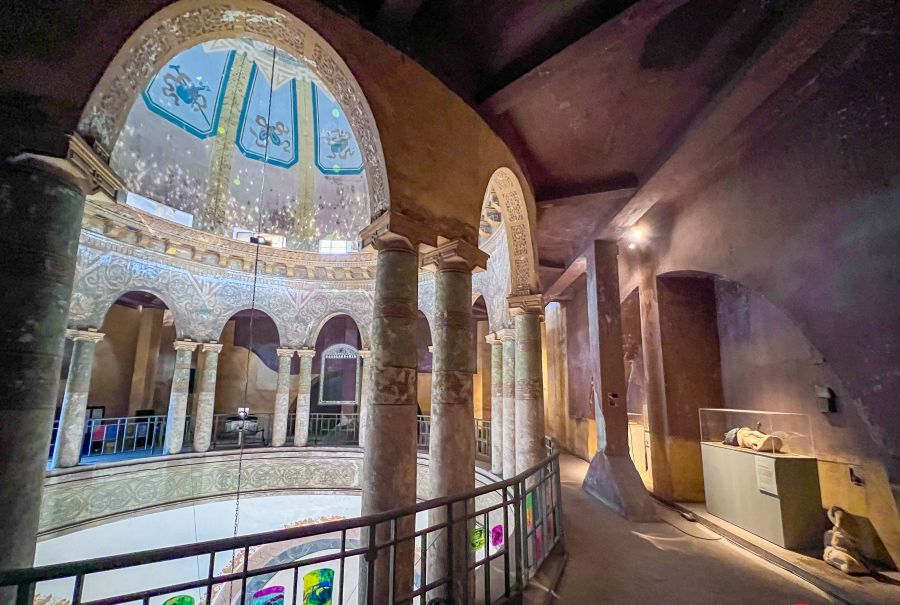Hanoi’s vibrant energy and hustle and bustle of year-end festivals create a dynamic atmosphere that makes it an ideal destination for solo travellers, offering a sense of connection amidst the hectic pace of the city.
Solo travel is trending in 2024, with a remarkable 75% of Vietnamese travellers planning to travel alone this year, according to the latest report from the travel website Booking.com.
In today’s interconnected world, solo travel is more feasible than ever. Far from being intimidating, it offers unique opportunities for personal growth, adventure, and unforgettable experiences.
In honor of Single Day, which falls today, November 11, Booking.com suggests a list of destinations in Vietnam for every type of solo explorer, from seasoned adventurers to curious first-timers.
Accordingly, Hanoi stands out as one of the top destinations in Vietnam for solo travelers. “Hanoi, the capital city, is a paradise for culture seekers,” the travel website suggested.
“Solo travelers can explore the bustling streets of the Old Quarter, marvel at the iconic Hoan Kiem Lake, and lose yourself in the beauty of ancient pagodas and stunning French-colonial architecture. Relax with a cup of Vietnamese coffee by the lake or join a walking tour to mingle with other travelers and delve deeper into the city’s rich history and food culture,” it added.
In celebration of the Hanoi Festival of Creative Design 2024, running until November 17, the capital offers a wealth of exciting destinations for visitors. For the first time, iconic French colonial landmarks in Hanoi, including the Tonkin Palace or Government Guest House, the Opera House, and Hanoi University, are open to the public, offering architecture enthusiasts a unique opportunity to explore these historic sites.
“I encourage you to seize this wonderful opportunity to experience Hanoi’s hidden gems in all their glory,” Jonathan Baker, UNESCO’s Chief Representative in Vietnam, told visitors during the festival.
In addition to the stunning Indochinese architecture of the century-old University of Hanoi (or Indochinese University during the French colonial era), visitors can explore the zoological collection on the second floor of the building, which contains hundreds of specimens and skeletons of wild animals native to Indochina.
In addition, the narrow, winding staircase leading to the dome of this historic building is now open to the public for the first time, offering a closer look at the intricate hand-painted details on the roof – created more than a century ago.
Visitors who want to explore the lifestyle of ancient Hanoians should not miss the historic house at 87 Ma May Street in Hanoi’s Hoan Kiem District. It is one of 14 old houses in Hanoi built in the late 19th century that still retain their original features.
Built on a total area of 157.6 square meters, the house has changed owners several times. From 1954 to 1999, five different families lived here. The house has the typical architecture of Hanoi’s houses in the old days with its tubular shape, which is narrow but deep. Its rooms, mezzanines and courtyards were all well designed for the comfort of its dwellers.
 |
| The live performance of “Stories of Hang Streets” at the Ancient House No. 87 Ma May Street in Hanoi’s Old Quarter. Photo: Vietnam Travel. |
Travelers can book a 30-minute “Stories of Hang Streets” live performance tour to gain a deeper insight into the area’s heritage. This realistic scenic tour takes visitors “back in time” to the 1940s and 1950s of the last century to witness a longtime medical family going about their daily lives. It depicts the routines of the family members and their interactions with each other, outsiders, and their environment.
Furthermore, Hanoi’s street food is a must-try experience for any visitor to the city. Exploring and enjoying delicious exotic dishes while exploring new places can make your travel experience very rewarding.
While Hoan Kiem Lake is known for its deep emerald waters in the heart of Hanoi, the traditional dishes in the surrounding streets are equally famous for showcasing the capital’s diverse and culinary tradition with different flavors.
According to local culinary experts, the refined style of Trang An, the historical name of Hanoi, is what defines its cuisine. Along with the development of all aspects, Hanoi cuisine also imported the essence of many regions throughout the country with some local tweaks.
Street food in Hanoi is varied for breakfast, lunch and afternoon light meal. Breakfast usually included pho or Vietnamese traditional flat noodle soup with beef or chicken, banh mi or Vietnamese sandwich, banh cuon or Vietnamese steamed rice rolls, xoi or sticky rice, among many others.
Lunch options included bun cha or grilled pork and noodle, bun rieu or crab soup with noodle, bun oc or snail soup with noodles, mien luon or crystal vermicelli with eel, banh xeo or Vietnamese pancakes, among other dishes.
Delicious afternoon snacks include banh gio or Vietnamese pyramid pork dumplings, rice porridge with chicken, sweet dessert and others.
Meanwhile, the Old Quarter of Hanoi is home to a wide variety of restaurants, offering an extensive range of dining options for dinner, from vegetarian and traditional Vietnamese cuisine to Chinese and international dishes.
Other destinations in Vietnam recommended by Booking.com for solo travelers include the imperial citadel of Hue, the ancient city of Hoi An, Ninh Binh in the north, and the coastal city of Phan Thiet in the south.










